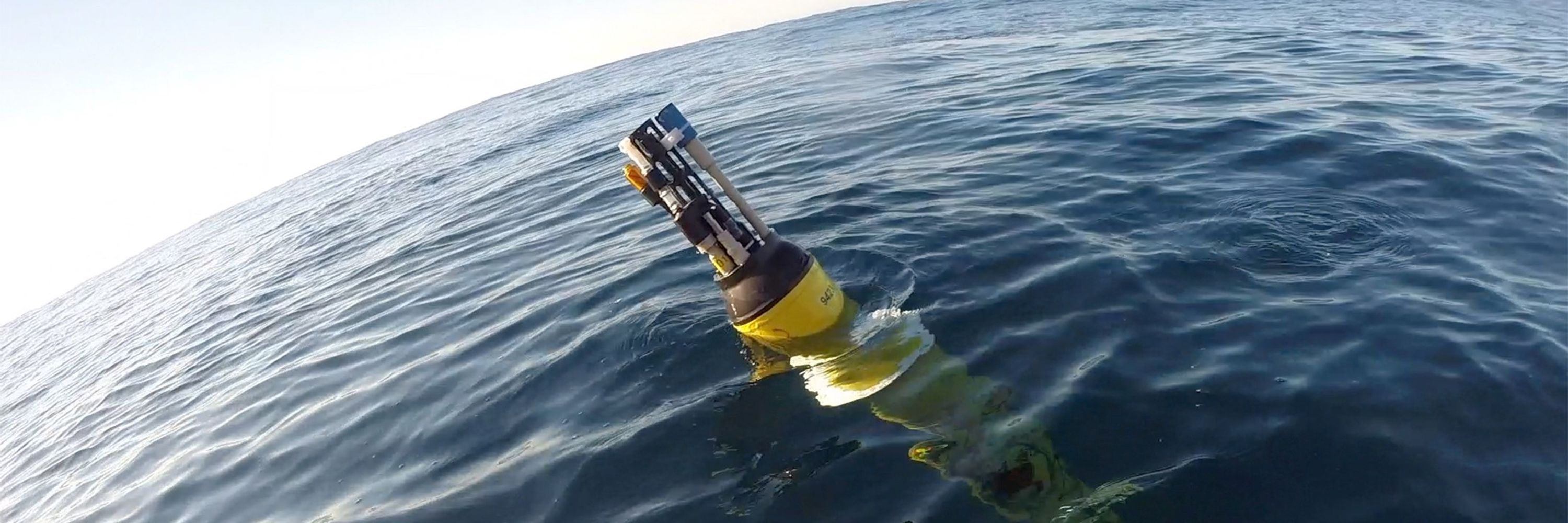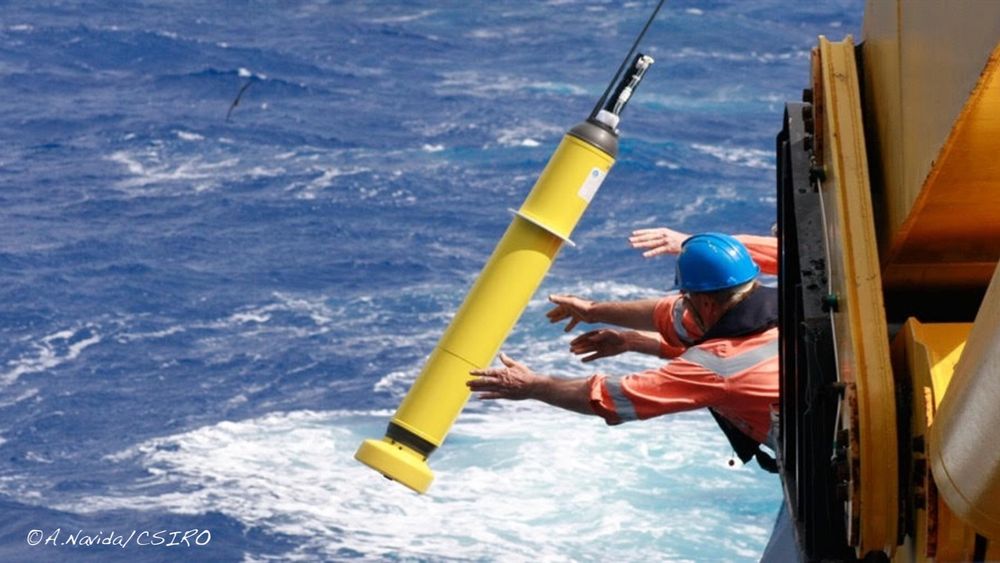
https://www.go-bgc.org/


GO-BGC is an NSF-funded project to build a global network of chemical and biological sensors that will monitor ocean health.
Learn more and download data at www.go-bgc.org
We examined the breathing of one of the ocean’s lungs 🩺 and found some surprises
Paper summary in schematic, more info ⬇️
1/🧵

🔗 storymaps.arcgis.com/stories/5712...

🔗 storymaps.arcgis.com/stories/5712...
✅Permanent Ocean Monitoring
✅Aid weather/climate forecasts
✅Free/open data


✅Permanent Ocean Monitoring
✅Aid weather/climate forecasts
✅Free/open data

A new statistical approach developed by researchers @mbarinews.bsky.social & @miamirosenstiel.bsky.social enables detection of nitrite and thiosulfate in oxygen-deficient zones.
Read more: agupubs.onlinelibrary.wiley.com/doi/10.1029/... @agu.org

A new statistical approach developed by researchers @mbarinews.bsky.social & @miamirosenstiel.bsky.social enables detection of nitrite and thiosulfate in oxygen-deficient zones.
Read more: agupubs.onlinelibrary.wiley.com/doi/10.1029/... @agu.org
BGC-Argo floats used to study marine heatwaves and oxygen deficient zones. Great work by Mariana Bif - University of Miami, former MBARI postdoc.


BGC-Argo floats used to study marine heatwaves and oxygen deficient zones. Great work by Mariana Bif - University of Miami, former MBARI postdoc.
Learn more: www.mbari.org/news/marine-...

Learn more: www.mbari.org/news/marine-...
Applying machine learning algorithms to a trove of data collected by robotic floats has improved estimates of ocean productivity and carbon export in the Southern Ocean: www.mbari.org/news/new-ai-...

Applying machine learning algorithms to a trove of data collected by robotic floats has improved estimates of ocean productivity and carbon export in the Southern Ocean: www.mbari.org/news/new-ai-...
But more..
@globaloceanbgc.bsky.social floats. @mbarinews.bsky.social

But more..
@globaloceanbgc.bsky.social floats. @mbarinews.bsky.social


We’re hiring a Data Analyst to work on processing, quality control, and scientific analysis of data from Biogeochemical-Argo floats.
📩 Interested? Reach out to Dr. Giorgio Dall’Olmo: gdallolmo@ogs.it

We’re hiring a Data Analyst to work on processing, quality control, and scientific analysis of data from Biogeochemical-Argo floats.
📩 Interested? Reach out to Dr. Giorgio Dall’Olmo: gdallolmo@ogs.it
A new Argo float is now collecting year-round data in Northeast Greenland, in one of the most remote and rapidly changing regions on Earth.
🔗 Read more: oceanographicmagazine.com/features/oce...
#Argo #OneArgo #Argofloat #Argofloats

A new Argo float is now collecting year-round data in Northeast Greenland, in one of the most remote and rapidly changing regions on Earth.
🔗 Read more: oceanographicmagazine.com/features/oce...
#Argo #OneArgo #Argofloat #Argofloats
“Our ocean is the foundation of our very existence. Today we took an important step forward to save our ocean, & to save our future” - ED @ingerandersen.bsky.social

“Our ocean is the foundation of our very existence. Today we took an important step forward to save our ocean, & to save our future” - ED @ingerandersen.bsky.social
Now more than ever, ocean observations and data must be at the core to turn words into action.

Now more than ever, ocean observations and data must be at the core to turn words into action.
🔗 Details & apply : emploi.cnrs.fr/Offres/CDD/U...

🔗 Details & apply : emploi.cnrs.fr/Offres/CDD/U...
And it is reaching these levels far earlier than the current generation of climate models had expected.
A short thread 🧵

And it is reaching these levels far earlier than the current generation of climate models had expected.
A short thread 🧵

Applying machine learning algorithms to a trove of data collected by robotic floats has improved estimates of ocean productivity and carbon export in the Southern Ocean: www.mbari.org/news/new-ai-...

📲Get inspired by her journey: go.whoi.edu/fe-bower

📲Get inspired by her journey: go.whoi.edu/fe-bower
GO-BGC is an NSF-funded project to build a global network of chemical and biological sensors that will monitor ocean health.
Learn more and download data at www.go-bgc.org


GO-BGC is an NSF-funded project to build a global network of chemical and biological sensors that will monitor ocean health.
Learn more and download data at www.go-bgc.org
The storm is tracking right over a number of the floats, which cycle through the water column collecting temp & salinity data that help scientists forecast its track & intensity.
📲Learn more: go.whoi.edu/argo

The storm is tracking right over a number of the floats, which cycle through the water column collecting temp & salinity data that help scientists forecast its track & intensity.
📲Learn more: go.whoi.edu/argo
🌊 OT013 "Monitor the future ocean: Applications of OneArgo in science and operational models"
📅 Deadline: August 20th, 3:59 UTC
➡️ agu.confex.com/agu/osm26/pr...
#Argofloats #OceanScience #OceanObserving

🌊 OT013 "Monitor the future ocean: Applications of OneArgo in science and operational models"
📅 Deadline: August 20th, 3:59 UTC
➡️ agu.confex.com/agu/osm26/pr...
#Argofloats #OceanScience #OceanObserving
@mbarinews.bsky.social @soccomproject.bsky.social @bgc-argo.bsky.social


@mbarinews.bsky.social @soccomproject.bsky.social @bgc-argo.bsky.social
GO-BGC is an NSF-funded project to build a global network of chemical and biological sensors that will monitor ocean health.
Learn more and download data at www.go-bgc.org


GO-BGC is an NSF-funded project to build a global network of chemical and biological sensors that will monitor ocean health.
Learn more and download data at www.go-bgc.org

